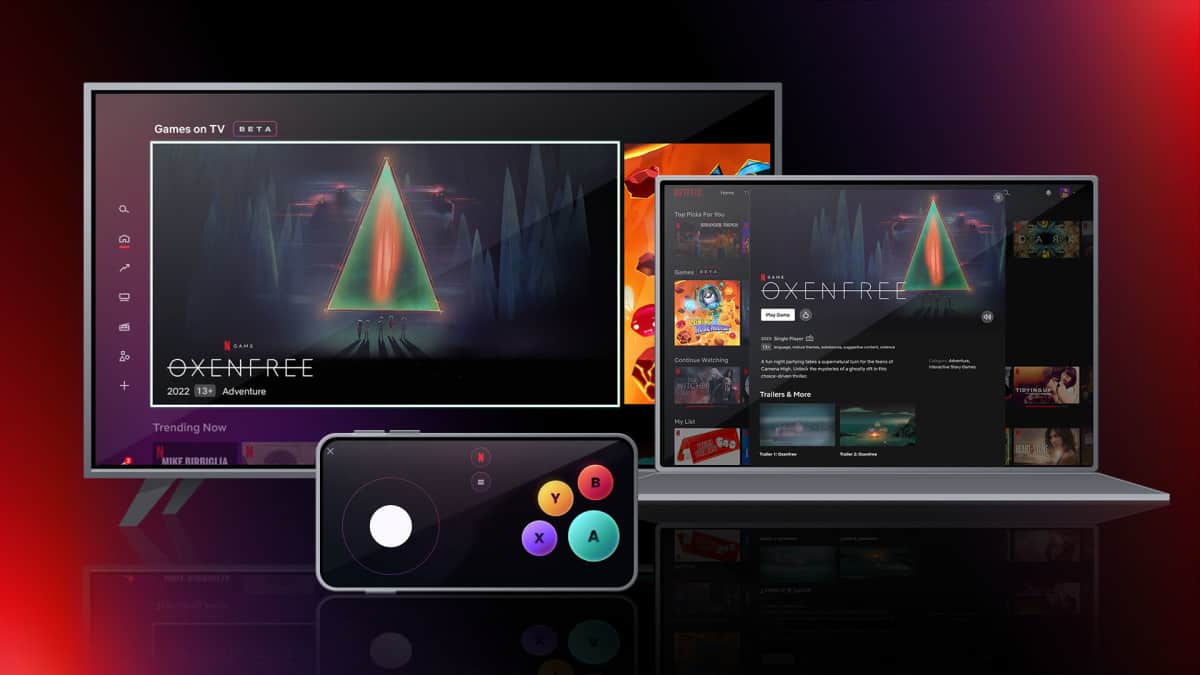The gaming industry is constantly evolving, and one of the most significant trends driving this change is cloud gaming. This technology allows players to access and play high-end games directly from remote servers, eliminating the need for expensive consoles or powerful PCs. By streaming the game instead of downloading it, cloud gaming opens doors to a wider audience and disrupts the traditional gaming landscape.
In this blog, we’ll delve into the world of cloud gaming, exploring its potential, impact on the industry, and the exciting possibilities it holds for the future.
Demystifying Cloud Gaming: How Does It Work?
Imagine accessing the latest AAA titles, with their stunning visuals and demanding processing power, from your mobile phone or even a low-end laptop. That’s the magic of cloud gaming. Here’s a breakdown of its core functionality:
- Remote Servers: Games are installed and run on powerful servers in remote data centers, equipped with top-of-the-line hardware.
- Streaming: The rendered visuals and audio are compressed and streamed over the internet to the user’s device in real-time.
- User Input: The player’s inputs (via controllers, keyboards, etc.) are transmitted back to the server, controlling the game’s actions.
Essentially, your device acts as a window to the game running on the server, eliminating the need for local processing and storage.
Benefits of Cloud Gaming: A Game Changer for Players
Cloud gaming offers a multitude of advantages for gamers of all levels, making it an attractive alternative to traditional methods:
- Accessibility: Play high-end games on any compatible device with a stable internet connection, regardless of its hardware limitations.
- Cost-Effectiveness: Eliminate the need for expensive consoles or frequent PC upgrades, potentially saving a significant amount of money in the long run.
- Instant Gratification: No more waiting for lengthy downloads or installations. Jump straight into the action with minimal setup time.
- Game Library Expansion: Access a vast library of games through subscription services, widening your gaming horizons without the commitment of buying individual titles.
- Cross-Platform Play: Seamlessly switch between devices (smartphones, tablets, PCs) without losing progress, thanks to cloud-based save data.
Impact on the Gaming Industry: A New Era Dawns

The emergence of cloud gaming has significant implications for the entire gaming industry, influencing various aspects:
- Market Expansion: Cloud gaming opens doors to a much wider audience, including players who previously couldn’t afford high-end hardware. This expansion has the potential to boost the overall size and revenue of the gaming market.
- Shifting Business Models: Subscription-based services and microtransactions might become more prevalent as cloud gaming platforms gain traction. This could challenge the traditional model of buying individual games.
- Focus on Game Development: Developers can potentially focus on creating innovative and engaging gameplay experiences without worrying about hardware limitations faced by players.
- Evolving Role of Hardware Manufacturers: The role of console and PC manufacturers might evolve, with a potential shift towards cloud-optimized devices or partnerships with cloud gaming providers.
Challenges and Considerations: Not a Perfect Stream
While cloud gaming offers exciting possibilities, it’s not without its challenges:
- Internet Dependency: A reliable and high-speed internet connection is crucial for a smooth and lag-free cloud gaming experience. This can be a barrier for players in regions with limited internet infrastructure.
- Latency Issues: Delays between user input and in-game response (latency) can be detrimental, especially in fast-paced games. Continued advancements in server technology and internet infrastructure are crucial to address this.
- Data Usage Concerns: Streaming games can consume significant amounts of data, which can be a concern for players with limited data plans.
- Control Over the Experience: Players might have less control over game settings and modifications compared to traditional methods due to the remote nature of cloud gaming.
The Future of Cloud Gaming: A Stream of Possibilities
The future of cloud gaming is bright, with continuous advancements in technology paving the way for an even more immersive and accessible gaming experience:
- 5G Integration: The widespread adoption of 5G networks promises to significantly reduce latency and increase data transfer speeds, leading to smoother gameplay and potentially making cloud gaming the preferred method for many.
- Integration with VR and AR: Cloud gaming has the potential to unlock the full potential of VR and AR gaming experiences, making them more accessible and realistic.
- Continued Innovation: We can expect further advancements in server technology, compression algorithms, and streaming protocols, leading to an even more seamless and enjoyable cloud gaming experience.
In conclusion, cloud gaming is revolutionizing the industry by offering greater accessibility, affordability, and convenience for players. While challenges remain, the potential benefits and continuous advancements position cloud gaming as a major force shaping the future of gaming.
















Add Comment